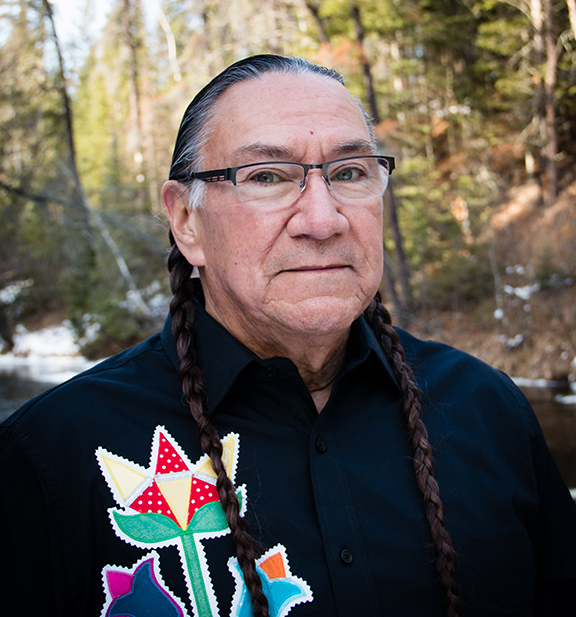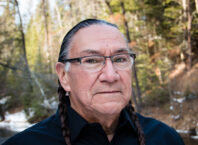By Arne Vainio MD
“Has it really been sixteen years?” “It has.” She answered. “I still think about him every day.”
She was 78 now and I could tell seeing me brought back a flood of memories. When he was dying, I saw them almost every week and I hadn’t seen her since his funeral. I remembered the flower arrangements and the bulletin boards covered with photos flanking his casket. Those old pictures had been pulled out of albums and were curling in the corners and they showed me a side of him I never knew.
She was too heartbroken and too busy at the funeral to talk to and I didn’t see her again, but I thought of them off and on over the years. They were married for just over forty years when he died. He was a veteran and there were photos of him when he came back from the war. He was young and thin in them and there was no hint of the liver cancer that would eventually take him.
I started to see him when his legs began to swell and his skin turned yellow. His liver tests were elevated and a CT scan showed several large masses in his liver had spread to other organs in his belly. He was hoping for surgery, but his cancer had spread into too many places. Chemotherapy made him sick, but he wanted to stay alive long enough to watch his tenth-grade granddaughter graduate and he was willing to do what he needed to do.
His hair fell out, but then began to come back and it was wavy and thick and gray. His liver tests seemed to get better for a while, then his jaundice and his swelling came back. He was following up with the Oncologist, the cancer specialist and they changed his chemotherapy to a different regimen.
I wasn’t really taking care of his cancer, but they liked that I explained everything to them in a way they could understand. They were both too respectful of the Oncologist to really ask him questions and they felt if they had to ask him to explain something again, it would mean they thought he wasn’t telling them the truth.
As his liver continued to fail, the complications increased. He started to get confused and had to start a medicine to get rid of ammonia and the medicine made him have diarrhea. Once he was in a store and he didn’t make it to the bathroom and he never went back to that store again.
His belly started to swell and it made it hard for him to breathe. He had the fluid drained off by the Radiologist and it came back a couple of weeks later. Clotting factors are made in the liver and he got a nosebleed that wouldn’t stop and had to have a nasal packing done in the emergency room. That was a painful procedure and he told me he never wanted to do that again.
His back started to hurt and a scan showed his cancer had spread to his spine. He had to take narcotic pain medicines and the resulting constipation was so severe he had to be seen in the emergency room several times for enemas.
All the while, they continued to see me and I followed him when he was in the hospital. They were both happy to see me and he was in the hospital the last morning I saw him. He was feeling hopeful to go home and it was coming up on Halloween. He told me one year he dressed up as a scarecrow and sat on the swing on the porch and jumped up when trick or treaters rang the doorbell. “I found more candy on the porch than I gave out that year.”
He felt sick to his stomach later that morning and he collapsed in his hospital room. A code was called and they couldn’t resuscitate him. An autopsy found he had a massive bleed into his stomach and went into cardiac arrest due to the loss of so much blood. She was with him when he died.
Now it was sixteen years later and she was in the hospital for a COPD exacerbation. I could tell seeing me brought all of that and his last day back to her vividly. “That was a long and difficult journey we were on together, Dr. Vainio.”
“It was.” I said. “I’ve thought about you over the years and often thought I might run into you somewhere.”
She didn’t say anything for a while and then she spoke softly. “I’ve avoided you. I just couldn’t talk about him and I didn’t want to relive any of those days. I don’t know why I thought that, because I relive them all the time anyway.”
“Does seeing me now hurt as much as you thought it would?” I asked.
“It does.” She replied. “I was seventeen when we were married and everyone said he was too wild for me. He was at first and he ended up in jail a couple of times for fighting when he went into town. The police never sided with him and always assumed he was the one starting those fights. One of them was over me. One of the men in town called me a squaw and he tore right into him. He finally settled down and he was a good man and he was a great father.”
“I liked him a lot and I really respected him.” I told her.
“He really respected you, too and he was so proud that you became a doctor. He was proud that you treated him like he was worthy of your respect. Not everyone treated him that way. He grew up during hard times.”
“You grew up during those times, too.” I answered.
“That was a long time ago, Dr. Vainio. Those times were bad for us. People said some awful things and thought they were funny. I keep hoping people will see each other for who they are and not as something undeserving as they were led to believe. You saw him as a good and worthy man and he was all that and more to me. He was my medicine and he was what kept me on this earth. My children and my grandchildren have lives of their own and I’m an old woman. Maybe not this time, but one of these times I will make that journey to join him. I’m ready for that and I’m not afraid.”
“I don’t think this is that time.” I replied. “I expect the antibiotic and the steroids we started will have you feeling better in a few days.”
“I suspect you’re right.” She said. “When my time does come, I want you to know I appreciate all you’ve done and I don’t want you to feel bad for me. Promise you’ll remember me when I didn’t need a walker and remember me as the young woman in those photographs.”
“I promise.” I replied.
“Can I ask you one more thing?” She asked.
“Yes.” I answered.
“Remind everyone to love those who are connected to them and to respect everyone. It’s easy to judge others if you don’t understand them. Ask them to visit someone who’s alone. Bring them a meal. Most importantly, sit and eat it with them. Tell each other your stories. This big world can be a lonely place if you’re just waiting for it to end.”
Arne Vainio, M.D. is an enrolled member of the Mille Lacs Band of Ojibwe and is a family practice physician on the Fond du Lac reservation in Cloquet, Minnesota. He can be contacted at a-vainio@hotmail.com.





